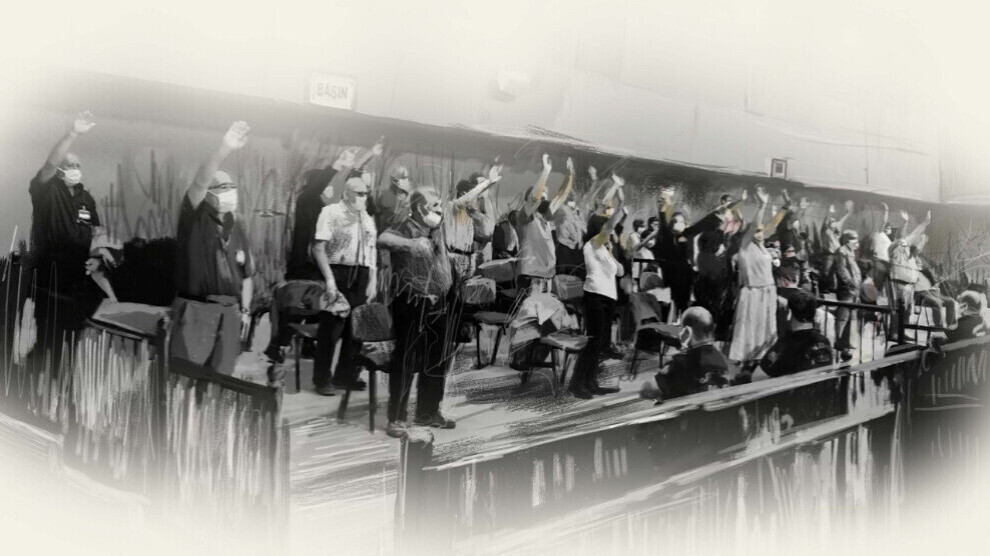Kobanê Trial: History will write about the Turkish judiciary!
Bülent Parmaksız who made his defence in the latest hearing of the Kobanê Trial said that “History will write about the Turkish judiciary.”
Bülent Parmaksız who made his defence in the latest hearing of the Kobanê Trial said that “History will write about the Turkish judiciary.”

The ninth hearing of the trial launched by the Turkish judiciary to judge the protests on 6-8 October 2014 against ISIS attacks on Kobanê is continuing on its second day.
108 people, including the former co-chairs of the Peoples' Democratic Party (HDP) and members of the central executive board of the party, are standing trial in the case held by the Ankara 22nd High Criminal Court at the Sincan Prison Campus.
HDP deputies, members of the central executive board of the party and Ankara provincial organization administrators as well as many lawyers attended the hearing.
While the politicians jailed in the Sincan Prison were present in the courtroom, those in different prisons were connected to the hearing through the sound and video Information System (SEGBİS).
Bülent Parmaksız, a former member of the party’s executive board, made a defence at the hearing. He stated that they were put on trial because of the call they had made to protest the attacks carried out by ISIS on Kobanê in 2014. He added, “History will write about the Turkish judiciary.”
“The capitalist system which promotes servile relations among people is doomed to collapse. The rising power of our age is socialism. Nothing has diminished our enthusiasm since 1917. I do not care whether you request several aggravated life sentences for us. I would sacrifice myself for the values of this land,” Parmaksız said in praise of socialism.
The HDP official addressed the injustices and inequalities as well as communal life and class wars.
“Where is justice?” Parmaksız asked and continued: “They are getting richer thanks to us. One percent of the population consumes a lot, and 99 percent less. The share of the produced goods goes to the bourgeoisie. The share of people in all products produced in a year is 74 percent. Is this justice? Justice is our most precious feeling and value. It means sharing what we produce together. If there is equality, then there is justice. I did not become a socialist by reading books. I worked in the village, I worked as a labourer. When I decided to embrace socialist ideas, I did not know what socialism was. I learned later what socialism actually is.”